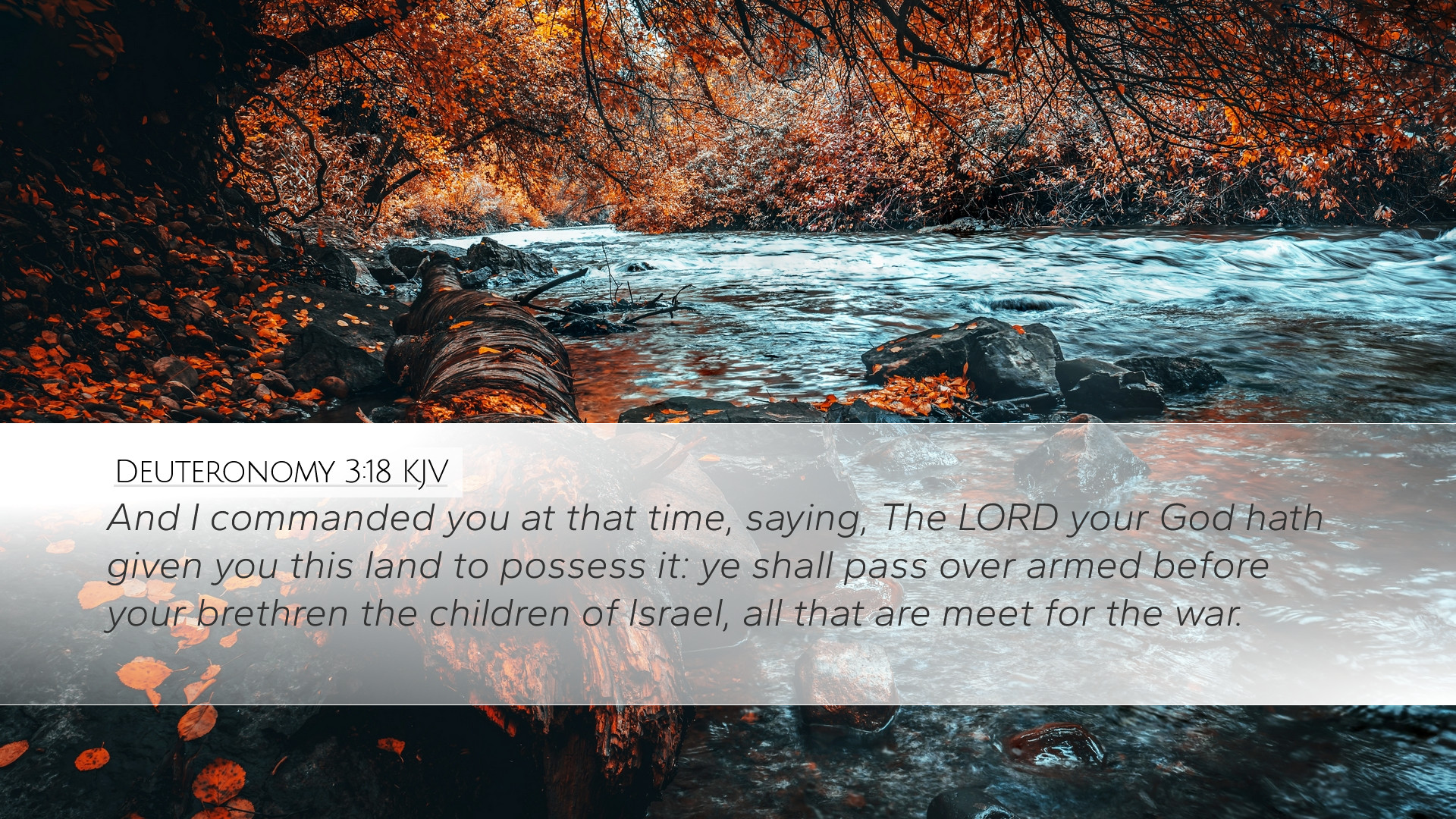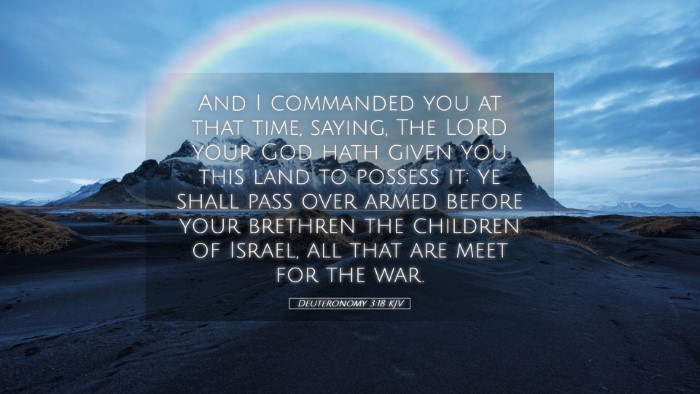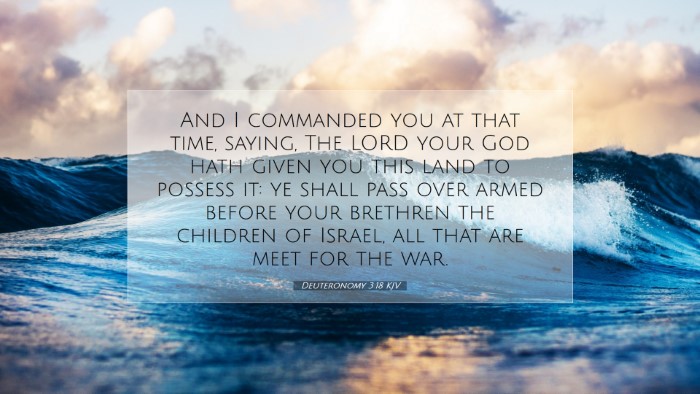Deuteronomy 3:18 Commentary
Bible Verse: "And I commanded you at that time, saying, The Lord your God hath given you this land to possess it: ye shall pass over armed before your brethren the children of Israel, all that are meet for the war."
Introduction
This verse falls within a broader discourse where Moses recounts God’s instructions to the Israelites regarding their conquest of Canaan. It emphasizes the unity and collective responsibility required of the Israelite tribes as they prepare to enter the Promised Land.
Contextual Background
Moses, addressing the second generation of Israelites, cites the commands given after their wilderness wanderings. The land promised to Abraham, Isaac, and Jacob is about to be inherited, but there are conditions and responsibilities attached to this fulfillment. Understanding this command within the narrative context is essential for grasping its significance.
Theological Implications
-
God’s Sovereignty:
God’s directive indicates His supreme authority over the land and the people. By stating that He has given the land, the text affirms that all possession originates from divine will.
-
Collective Responsibility:
The command to pass over armed signifies the need for unity among the tribes. Each member of the community is responsible for the struggle that ensures the success of the group. This is a profound theological point highlighting community over individualism in the life of faith.
-
Preparedness for Battle:
The need for readiness ('armed before your brethren') teaches a vital lesson about spiritual warfare. Christians are reminded to be vigilant and prepared, not just for physical battles but for spiritual ones as well (see Ephesians 6:10-18).
Commentary Insights
Matthew Henry
Henry emphasizes the importance of obedience to God's commands regarding readiness for battle. He notes that spiritual warfare requires a collaborative effort guided by divine instructions. He suggests that the preparation of Israel reflects the notion that God equips His people for the tasks they are called to undertake, ensuring that they operate as a cohesive body.
Albert Barnes
Barnes discusses the historical context of Moses' command, outlining the Israelite's past failures and God's faithfulness. He stresses that the call to arms also serves as a reminder of their deliverance and God’s promise. According to Barnes, the phrase 'armed before your brethren' serves as an exhortation of moral duty; those strong in faith must support their brothers and sisters in times of challenge.
Adam Clarke
Clarke provides a critical view of the leadership role Moses plays as he commands the people. He underscores that Moses is not just issuing orders, but rather, he is invoking the historical context of God’s empowerment of Israel. Clarke argues that the requirement for armed readiness symbolizes both physical and spiritual preparation for the tasks ahead as God’s people enter a new phase of their journey.
Practical Applications
-
Unity in Mission:
The church today can learn from the Israelites' need to work together. Missions and outreach should be viewed as collective ventures where every believer contributes with their unique gifts.
-
Preparation and Readiness:
Just as the Israelites were to be armed, modern believers are called to be prepared through prayer, study of scripture, and community. This readiness positions them to face challenges effectively.
-
Faith and Obedience:
The act of following God’s commands, even in daunting situations, reinforces faith. Believers are reminded that obedience often precedes the experience of God’s promises.
Conclusion
Deuteronomy 3:18 serves as a poignant reminder of the importance of collective effort, preparedness, and adherence to divine commands as the Israelites approached their long-awaited inheritance. For pastors, students, and scholars, it is a call to reflect on the nature of God’s promises and the community’s role in realizing them. The insights from Henry, Barnes, and Clarke enrich our understanding, urging us toward a faithful and unified ecclesial existence.


